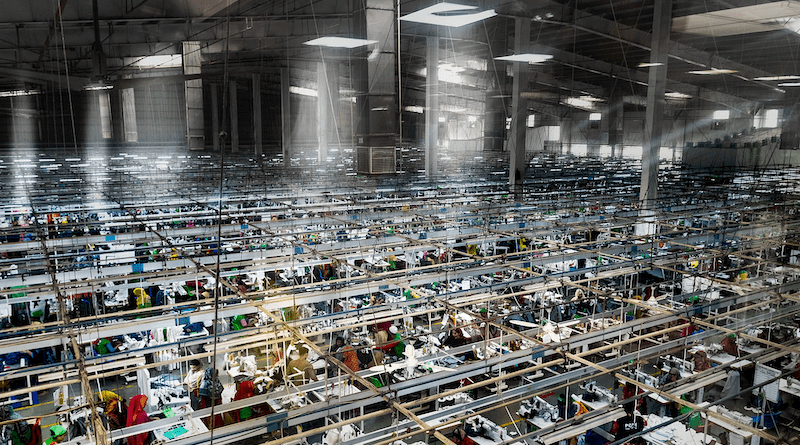The High Cost Of Low Holiday Prices – OpEd
’Tis the season for holiday sales. But on the other side of the planet, there’s a high cost for those low prices. This is especially true for “fast fashion,” the clothing equivalent of a Big Mac: attractive, affordable, and throwaway.
The Bangladeshi women who toil as underpaid garment workers so we can wear disposable outfits are making their voices heard loudly enough to reverberate across oceans. Mass protests for higher wages have roiled the South Asian country.
Bangladesh is the world’s second-largest exporter of apparel in the world, after China. Recognizable name brands like H&M, Zara, Calvin Klein, American Eagle, and Tommy Hilfiger, among others, rely on Bangladeshi garment factories.
The country’s 4 million garment workers, most of whom are women, until recently took home a meager pay of just $75 a monthand hadn’t gotten a raise in years. By one estimate, the cost of living for a single person in Bangladesh is about $360 a month, not including rent.
Workers have demanded a modest $205 a month, but pay increases offered by the country’s manufacturers totaled barely half that.
As protests intensified, Prime Minister Sheikh Hasina — once hailed as a liberal leader — unleashed security forces that have intimidated and attacked union organizers. Police recently fatally shot a 23-year-old mother and sewing machine operator named Anjuara Khatun after firing at protesters.
On the surface, U.S. brands who purchase their inventories from Bangladesh’s factories appear to be on the right side of the fight. The American Apparel and Footwear Association (AAFA), an industry trade group, wrote a joint letter urging Hasina to “raise the minimum wage to a level… sufficient to cover workers’ basic needs.”
The AAFA even asked the government to avoid retaliating against unions and to respect “collective bargaining rights.” The U.S. State Department issued astatement saying, “We commend the members of the private sector who have endorsed union proposals for a reasonable wage increase.”
Further, global retailers are offering to eat into their profits by increasing the price they pay factories to help them offset increased wages. Currently, the cost of the labor to produce garments is a mere 10-13 percent of a product’s total manufacturing cost.
But are companies really committed to raising garment workers’ wages?
A survey of about 1,000 factories in Bangladesh, published in early 2023, revealed that companies like Zara and H&M underpaid factories for garment purchases, making it harder for them to pay their workers. And when the COVID-19 pandemic led to global shutdowns, large retailers canceled orders and delayed payments.
“Only when suppliers are able to plan ahead, with confidence that they will earn as expected,” one industry expert told The Guardian, “can they deliver good working conditions for their workers.”
It’s been more than 10 years since the deadly collapse of Bangladesh’s Rana Plaza, the world’s worst garment industry disaster. The eight-story compound in Dhaka was filled with thousands of workers when it crumbled under the weight of government neglect and worker exploitation in April 2013. More than 1,100 workers, most of them women, were killed.
In the wake of the disaster, North American brands refused to join other global companies in signing on to the Accord on Fire and Building Safety in Bangladesh. Citing high costs, they chose instead to form their own alliance for inspecting factories, one that applied lower safety standards.
It was a stark indicator of where these companies’ priorities lay — and suggests their latest comments about higher wages are just lip service.
Fast fashion is expected to more than double its market size over six years, growing from $91 billion in 2021 to a projected $185 billion by 2027. Meanwhile, the workers who fuel the profits behind that expansion are facing starvation.
This holiday season, perhaps the best gift we can give is a commitment to force the industry to pay up.

